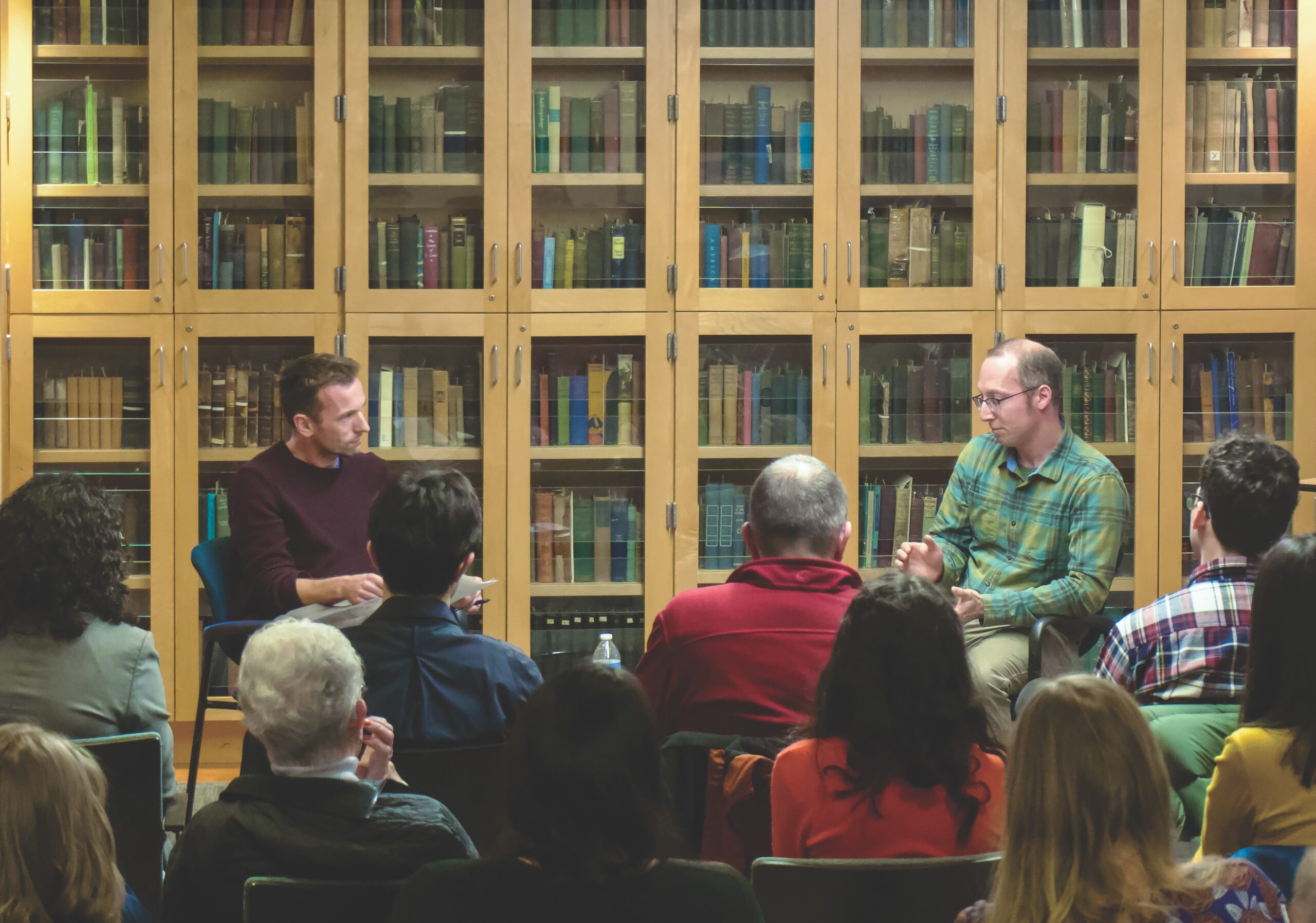Economics professor Daniel Stone launches new book “Undue Hate”
February 9, 2024
 Joy Wang
Joy WangYesterday afternoon, Associate Professor of Economics Daniel Stone presented his new book titled “Undue Hate: A Behavioral Economic Analysis of Hostile Polarization in US Politics and Beyond.”
Stone identifies affective polarization as a specific type of polarization plaguing the United States. As opposed to polarization over the role of the state in regulating firearms or over taxation policy, affective polarization refers to feelings and emotions one group has toward another. Stone contends that Democrats form more favorable attitudes toward other Democrats by virtue of their being Democrats and may thus hold less favorable opinions of Republicans, and vice versa.
A basic assumption of economics is that humans are rational actors with perfect information. Yet behavioral economics, Stone’s area of expertise, emphasizes that humans are rarely rational and often have flawed information that leads to rash and faulty decision-making.
Stone traced his interest in the topic of polarization back to the late 1990s when he began to grow increasingly concerned about climate change.
“I was shocked that no one was doing anything about [the climate crisis],” Stone said. “I did some related work in my graduate work and my thesis. And it’s led me to realize that it’s not just climate change where we fail to agree. We have a problem of broader polarization.”
Stone called for abandoning divisive attitudes, instead advocating for an embrace of intellectual humility and an acknowledgment of the internal biases each individual has.
“We should have some intellectual humility because considering how we interpret information and what information we lack, we can miss important information. We don’t know what we don’t know,” Stone said. “Sometimes people feel that right is right and we have to take a stand…. But at those times, people forget all about the biases [they have] and the research when they feel that way.”
The tendency to assume the worst of those holding opposing political positions leads to distrust, polarization and undue hate, Stone argued.
“Given that our emotions, our feelings towards others and/or basic beliefs that could be wrong, we can like people either too much or too little. Given whatever our own standards are, whatever my criteria is for deciding who to like and not to,” Stone said. “There’s a lot of data showing that both Democrats and Republicans do have false overly pessimistic beliefs about who the other side is, and that leads us to dislike the other side more than we should.”
When it came to Trump, Stone acknowledged that while he does not support Trump, ostracizing Trump supporters is the wrong approach. Stone underscored the importance of combating undue hate and empathizing with others.
“I say as a rule of thumb you should cut your hate in half,” Stone said. “I think there are interesting arguments out there for supporting Trump now. I think the arguments for supporting Trump are stronger than most anti-Trump people think. Those people who say if you like Trump, you’re dead to me, I think that is undue hate.”
Nevertheless, some audience members were unconvinced. Adams-Catlin Professor of Economics Emeritus David Vail countered Stone’s reasoning, arguing that the Republican Party is the problem, and that given its anti-democratic tendencies, intellectual humility is the wrong way to approach the enduring effects of polarization.
“I’m going to suppress my humility for a minute and say that I think we do live in a world right now where one party is the problem. I’d say the Republicans under Trump are the problem,” Vail said. “We have one party that is the Trump party. It’s not the Republican Party as we grew up knowing.”
Nevertheless, Stone remained adamant in his belief that contemptuous outlooks toward differing opinions can only increase divisions and engender overconfidence in one’s beliefs.
“A lot of research from psychology and behavioral economics indicates that we have a tendency to essentially … be overconfident in what we know. So when we think that the policy the other side is proposing is a bad policy, when we’re sure about that, we’re more sure than we should be,” Stone said in an interview with the Orient. “We also have a tendency to catastrophize and to attribute overly negative motives to the other side.”
Stone explained why he chose to open his book with the story of Shirley Chisholm, the first Black woman to be elected into Congress, and the evolution of her professional relationship with former Alabama Governor George Wallace. He believes their anecdote demonstrates how empathy, not hate, makes change possible and strengthens the nation.
“We ought to make an effort to not be hateful as much as we normally would be. I’m not even saying one should never hate anything, but second guess your own hate and try to cut back on it a bit. And, recognize that we’re all playing a small role in this broader national depolarization game,” Stone said.

Comments
Before submitting a comment, please review our comment policy. Some key points from the policy: